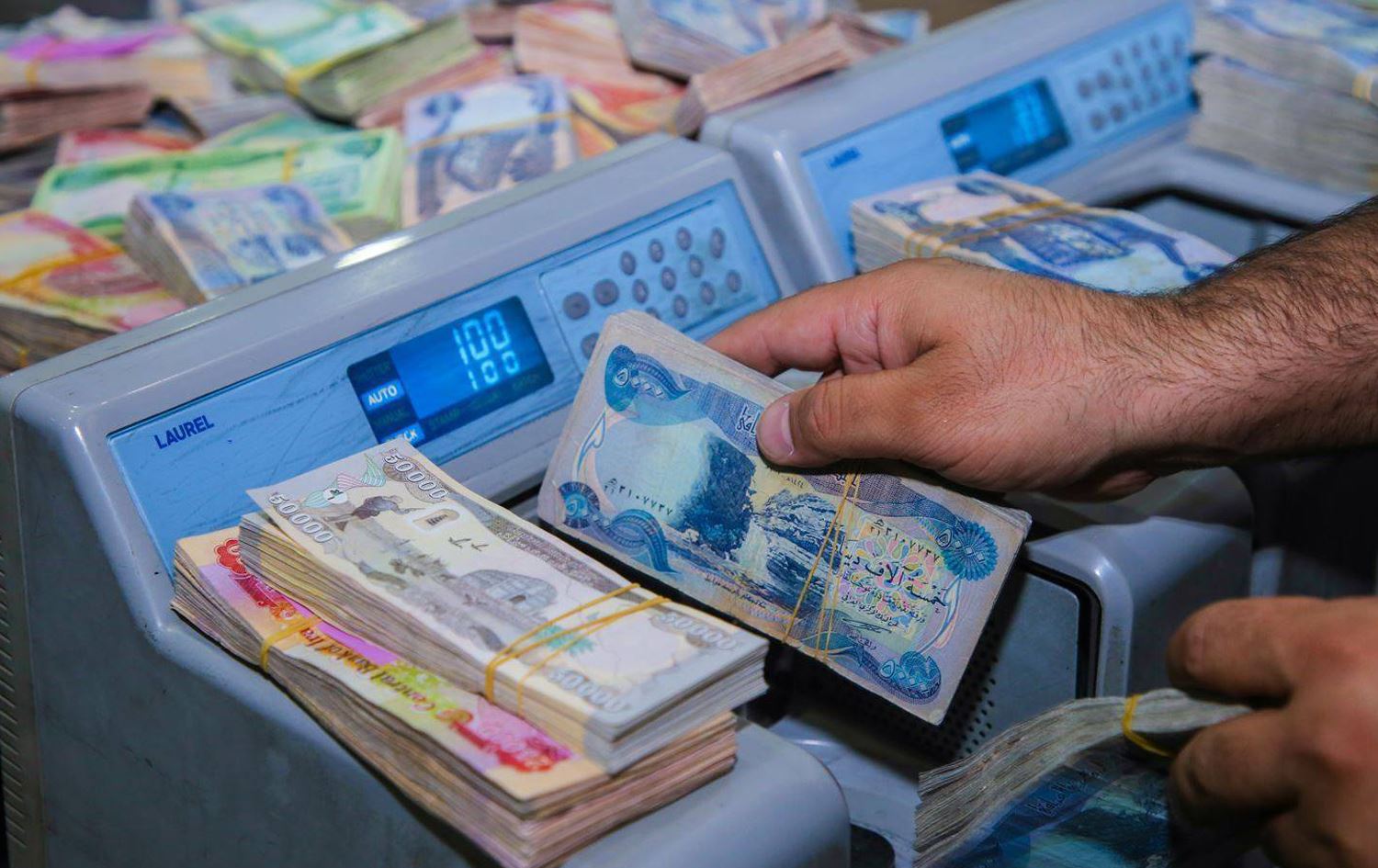The Iraqi Central Bank’s (CBI) total sales in U.S. dollars exceeded $1 billion last week, signaling continued efforts to stabilize the country’s economy. Over five days of auctions, the bank facilitated significant foreign exchange transactions. Concurrently, financial negotiations between Iraq and the Kurdistan Region focused on resolving public salary distribution issues, with both governments aiming to establish a fair mechanism for sharing oil revenues and border crossing income, fostering greater economic cooperation and stability.
Central Bank of Iraq Exceeds $1 Billion in Currency Sales
Last week, the Iraqi Central Bank (CBI) sold over $1.28 billion in hard currency over five consecutive days of foreign exchange auctions. The average daily sales reached approximately $256.6 million. Wednesday witnessed the highest sales, with over $262.9 million, while Monday saw the lowest, totaling $251.3 million. These auctions are crucial in maintaining Iraq’s financial stability by managing the availability of U.S. dollars in the local market.
The CBI’s total foreign exchange sales reached $1.216 billion, with cash sales amounting to $66.9 million. The transactions were covered at a base exchange rate of 1,310 dinars per U.S. dollar for documentary credits and international settlements of electronic cards and foreign transfers. Meanwhile, cash transactions were handled at a slightly lower rate of 1,305 dinars per dollar.
The central bank’s interventions are part of its broader strategy to stabilize the national currency, which is crucial for Iraq’s trade and economic relations, both domestically and internationally.
Financial Talks Between Iraq and the Kurdistan Region
While the CBI conducted its foreign exchange operations, financial discussions between the Iraqi government and the Kurdistan Region also took center stage. Last Saturday, the head of the Iraqi Parliamentary Finance Committee announced that a delegation would visit the Kurdistan Region to assess the current status of salary distributions for public sector employees.
The visit follows ongoing negotiations between Iraq and the Kurdistan Regional Government (KRG) regarding financial agreements, specifically addressing the distribution of oil revenues and payments for civil servants. A joint meeting of the Iraqi and Kurdistan Economic Councils took place last Sunday to address these financial concerns, with officials highlighting the need for a fair and transparent mechanism for sharing oil and border-crossing revenues. These negotiations aim to foster trust and economic stability in both regions.
The talks were described as a “historic opportunity” for financial reconciliation between Iraq and the Kurdistan Region, with both sides aiming to resolve long-standing financial disagreements. Strengthening financial cooperation is seen as vital for ensuring that monthly salaries for public employees in the Kurdistan Region are disbursed on time, which remains a contentious issue.
Iraq’s Growing Gold Reserves and Global Trends
In addition to foreign exchange sales, the Central Bank of Iraq has also been building its gold reserves as part of a global trend among central banks to diversify foreign exchange holdings. Over the past three years, Iraq has acquired approximately 52 tonnes of gold, including 33.9 tonnes in 2022, 12.3 tonnes in 2023, and 5.7 tonnes so far in 2024. These purchases are part of a broader strategy to mitigate economic risks and provide greater security for Iraq’s financial future.
Gold prices have surged globally by nearly 20% in 2024, driven by heightened central bank purchases, robust consumer demand in China, and geopolitical uncertainties. Central banks worldwide purchased a record 483 tonnes of gold in the first half of 2024. Iraq’s expanding gold reserves position it alongside other nations that are increasingly turning to gold to safeguard against economic volatility.
Currency and Gold Market Developments
On the domestic front, gold prices saw a slight increase across Iraq and the Kurdistan Region last Saturday. In Iraq, the price of 21-carat gold rose to 534,000 Iraqi dinars per mithqal (five grams), while the price of Iraqi-produced 21-carat gold stood at 504,000 IQD per mithqal.
The U.S. dollar exchange rate also fluctuated in currency markets last week. In Iraq, the exchange rate climbed to 149,800 IQD per $100, with some currency exchange shops in major cities selling U.S. dollars at even higher rates. In the Kurdistan Region, similar trends were observed, with exchange rates hovering around 149,800 IQD per $100.
Despite fluctuations in the currency and gold markets, the CBI’s interventions and ongoing financial negotiations between Iraq and the Kurdistan Region signal efforts to stabilize the economy and foster cooperation between the two regions. This economic alignment, along with bolstering gold reserves, is part of a long-term strategy to ensure the financial well-being of Iraq and its regions.
- For KfutureMedia: Aland Faraidun


